The sun and earth -> expression
Expression in Science
Expressions in science refer to the way certain traits or features are being manifested in an organism or a system. These expressions can be observed in various forms, such as physical traits, behaviors, or biochemical reactions.
Types of Expressions
There are several types of expressions in science:
- Genetic Expressions: These are the traits that are inherited from parents and are manifested in an organism's physical appearance or behavior.
- Phenotypic Expressions: These are the observable characteristics of an organism, resulting from the interaction between its genetic makeup and the environment.
- Biochemical Expressions: These refer to the ways in which genes are translated into proteins and other molecules, influencing the biochemical processes within an organism.
Studying Expressions
When studying expressions in science, it's important to consider various factors:
- Genetic Factors: Understanding the genetic makeup of an organism and how it influences the expressions of specific traits.
- Environmental Factors: Examining how the environment can impact the expression of traits, particularly in the context of phenotypic expressions.
- Molecular Biology: Exploring the biochemical processes involved in gene expression and protein synthesis.
Examples of Expressions
Examples of expressions in science include:
- Eye Color: The expression of specific genes determines an individual's eye color.
- Behavioral Patterns: Certain genetic and environmental factors contribute to the expression of behaviors in animals, such as mating rituals or foraging habits.
- Enzyme Activity: Biochemical expressions involve the regulation of enzyme activity, which influences various metabolic processes in living organisms.
Understanding expressions in science provides valuable insights into the mechanisms behind genetic inheritance, environmental interactions, and biochemical pathways within living systems.
.◂Science Worksheets and Study Guides Second Grade. The sun and earth
Study Guide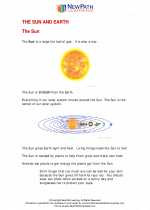 The sun and earth
The sun and earth  Activity Lesson
Activity Lesson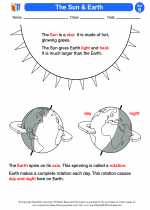 The Sun & Earth
The Sun & Earth  Worksheet/Answer key
Worksheet/Answer key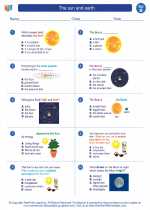 The sun and earth
The sun and earth  Worksheet/Answer key
Worksheet/Answer key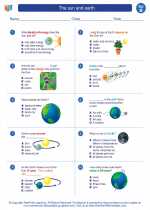 The sun and earth
The sun and earth  Worksheet/Answer key
Worksheet/Answer key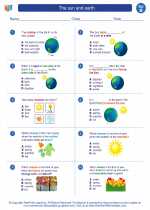 The sun and earth
The sun and earth  Worksheet/Answer key
Worksheet/Answer key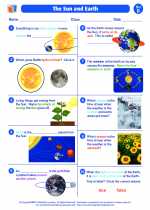 The Sun and Earth
The Sun and Earth  Vocabulary/Answer key
Vocabulary/Answer key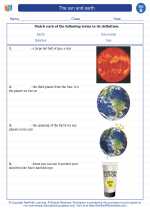 The sun and earth
The sun and earth 

 Activity Lesson
Activity Lesson
 Worksheet/Answer key
Worksheet/Answer key
 Worksheet/Answer key
Worksheet/Answer key
 Worksheet/Answer key
Worksheet/Answer key
 Worksheet/Answer key
Worksheet/Answer key
 Vocabulary/Answer key
Vocabulary/Answer key

The resources above cover the following skills:
Concepts of Earth Science: A student should understand and be able to apply the concepts, processes, theories, models, evidence, and systems of earth and space sciences. A student who meets the content standard should:
Develop an understanding of the cyclical changes controlled by energy from the sun and by Earth's position and motion in our solar system.